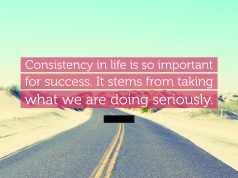By Pr Isaiah White
The good sesame seed has a story on WordPress.com about the good seed: Long time ago, a boy named Dink lived in China.
The king of that land had no children. One day, the king announced that whoever grew the most striking flower would become his successor.
Young men from all over the kingdom were given seeds by the king. Dink also planted his seed. He took great care to make it grow.
But to his dismay, even after two months, the seed remained as it was, while his friends’ seeds had grown into lovely flowers.
Dink was very worried. He changed the soil in the pot and waited for the seed to grow. But a year passed, and the seed did not germinate.
The next year, all the young men carried their flowerpots to the king’s palace.
The king looked at all the flowers. When he saw Dink, he asked, “Why did you bring an empty pot?”
Dink narrated the whole story to the king. The king smiled. Dink impressed him with honesty.
The king said to the others: “The seeds I gave you all were cooked. So, they could not grow. Only this boy is honest. Only he deserves to be my successor.”
Abraham’s dishonesty
“And it came to pass, when he was close to entering Egypt, that he said to Sarai, his wife, “Indeed I know you are beautiful.
“Please say you are my sister, that it may be well with me for your sake, and that I may live because of you.
“And Pharaoh called Abram and said, “What have you done to me? Why did you not tell me she was your wife?” (Genesis 12:10-13, 18).
In the hustle and bustle of today’s business environment, where speed is essential to making decisions, it is easy to forget the ethics of honesty.
Cheating, misconduct, deception and other forms of unethical behaviour have reasonable explanations today.
Honesty has become scarce in business, Church, governments, academic institutions, home and families.
In Dink’s story, the king did not trust those who wanted to succeed him. He decided to do an honesty check and those were the results.

In the verses above, Abraham, the patriarch of believers also did not trust the people of the nation he was going to, and that doubt triggered dishonesty in him.
It would seem unfit that a believer like Abraham told a lie. Dishonesty is not just telling a straight lie. It can also be taking advantage of facts.
Earlier this week, I escorted my best friend (Esther) to the road, and she did not like the first motorcycle rider that asked to carry her.
Instead of telling the man that she didn’t like the old bike, she told him that she was travelling very far, which was true, but the intention here was to discourage him by frustrating the bargaining process.
Eventually, they could not do business. So, the boda-boda man had to go.
What Esther did is what we always do. In some cases, we call it professional ethics of information management.
Dishonesty is when we call hypocrisy not by its name, but by ‘political correctness’.
When Abraham told Pharaoh that Sarah was his sister, it was a fact for Sarah was a daughter to Abraham’s brother Haran, and, therefore, in the Hebrew custom, she might truly be called his sister, as Lot is called Abraham’s brother (Genesis 11:31, Genesis 20:12).
He told facts of Sarah being his sister, but was dishonest about her being his wife.
Dishonest facts
When facts are used to justify a lie, dishonesty is at play. Some think they are innocent as long as they say what is technically true, even though they intend to mislead others to believe what is not true.
Many organisations fund research projects to scientifically prove harmful drugs or even block authentic drugs from entering the market.
Business people often pay taxes on only the businesses and profits they declare selectively. All this is dishonesty.
Honesty begins with oneself. Dishonest people cannot be truthful to others.
It is important that you admit your mistakes and failures to yourself before you can be honest with others.
Honesty is the most effective policy, not in public, but private life.
In all dealings of life, even at the cost of our own lives, we should be honest.
The Apostle Paul said: “Pray for us: for we trust, we have an honest conscience, and we are always willing to live honestly.” (Hebrews 13:18)
The writer is a life coach and theologian.
Contact: +256 775 822 833
whitemwine@gmail.com






















